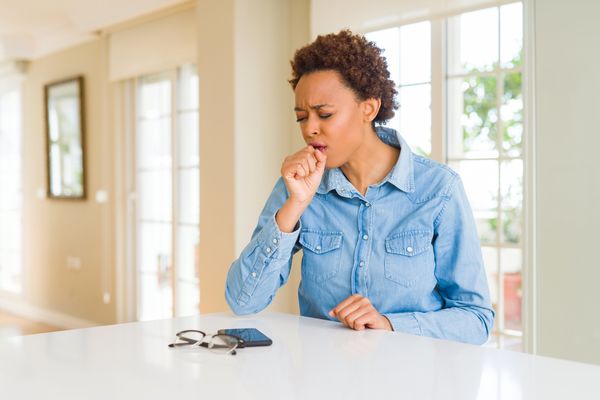By Sherrie Palm for Women's Health Foundation
Every year countless women receive a diagnosis of irritable bowel syndrome (IBS), many of them after inconclusive test results. Yet, tests and exams to accurately diagnose pelvic organ prolapse (POP) are seldom recommended despite the fact that half of all women over 50, along with countless younger women, suffer from POP.
Pelvic organ prolapse is an extremely common female health condition that has many overlapping symptoms with IBS. What will it take to bring POP out of the closet?
We all want a name to put to the symptoms we are experiencing; we all want verification that those symptoms are not in our heads. Many of us do our best to utilize the diets, medications and behavioral modifications our health care professionals recommend, trying to find some relief from the discomfort we deal with daily.
Chronic constipation is the most commonly reported gastrointestinal issue in the United States accounting for more than 2.5 million physician visits a year. Many people treat themselves without medical intervention.
Constipation is a symptom, not a disease. You are considered to have constipation if you have more than one of the classic symptoms for longer than three months: straining during elimination at least 25 percent of the time, two or fewer bowel movements in a week, incomplete evacuation more than 25 percent of the time, hard stools more than 25 percent of the time, painful elimination, or bloating. If three days pass without a bowel movement, your feces may become harder and more difficult to pass.
What many women are not aware of is that chronic constipation is both a cause and a symptom of pelvic organ prolapse. Although constipation has multiple causes such as poor diet, lack of exercise, hormone fluctuation or inadequate fluid intake, women with POP can address these issues and still obtain no relief.
A rectocele is one of five types of POP. It is when a bulge-type pocket occurs in the rectum and pushes into the rear vaginal wall. Fecal matter gets stuck in this bulge, resulting in relentless, long-term constipation. No amount of fiber eating is going to help much with this type of constipation. Women will find it extremely difficult to have a bowel movement. Often after much pushing and straining, a small amount of stool will come out, but it will not be a complete bowel movement. You are left with a sensation of fullness and the continual urge to have a bowel movement.
Occasionally something causes a system shift, and a woman with a rectocele will be able to have a bowel movement—occasionally is the operative word here. Some women find if they push on the perineum during a bowel movement, they are able to have a complete bowel movement. Others find that inserting a finger into the vagina to assist a bowel movement is beneficial (please wash your hands first if you are going to try this). Sometimes women resort to laxatives, finding nothing short of that will work.
The flip side of the coin is women with POP often have a strong urge to poop immediately, sometimes resulting in fecal incontinence. Since this is also a common IBS flag, the assumption by women experiencing these sensations (and often their physicians as well) is they have classic IBS when in fact it may be POP.
Learn more about urinary and fecal leakage.
POP occurs when the pelvic floor muscle becomes weak or damaged for a variety of reasons such as vaginal childbirth, menopause, repetitive heavy lifting, jogging or marathon running, as well as other causes. In a weakened or damaged state, this muscle can no longer support the organs within the pelvic cavity.
Each of the five types of POP is related to the organ or organs that have shifted from their normal positions. Once this shifting occurs, women start to experience many of the classic symptoms of POP—which leads us to the chronic constipation or fecal leakage issues in the case of rectocele.
I wonder how many women with chronic constipation are checked for POP. Typically, they go through upper and lower gastrointestinal testing for IBS and receive inconclusive results. I wonder how many women receive a pelvic exam when listing classic POP symptoms. I wonder how many women find themselves stuck in a cycle of elimination rituals, trying to balance the IBS they think they have and wondering why nothing works.
There is hope. Once a woman is diagnosed with POP, there are treatment options available. Symptoms of a rectocele will vary from woman to woman, but in general the most common symptoms of a rectocele are:
- Chronic constipation
- Abdominal bloating and gas
- Back/pelvic/rectal pain
- Rectal pressure
- Fecal incontinence
Read: Pelvic Organ Prolapse: All Symptoms Matter.
Women experiencing these symptoms should address POP concerns with their health care professionals, particularly if they have experienced a difficult childbirth, are in menopause, lift heavy loads repetitively (this includes picking up your children), or are marathon runners or joggers.
Once we get the POP word out on the street and this extremely widespread but closeted condition becomes common knowledge for women, recognition of the signs and symptoms of POP will enable women to access earlier treatment.
Sherrie Palm is the founder, CEO and executive director of the Association for Pelvic Organ Prolapse Support, a nonprofit foundation for pelvic organ prolapse support. She is also author of Pelvic Organ Prolapse: The Silent Epidemic, and a key opinion leader on pelvic organ prolapse. As a women's pelvic floor health advocate, she devotes her time to establishing recognition of pelvic organ prolapse and providing support pathways for women in various stages of POP. For relaxation Sherrie enjoys spending time in the woods and meadows of northern Wisconsin, walking with her dogs and taking digital photos of nature. For more info about APOPS or Sherrie Palm, visit Pelvic Organ Support.







